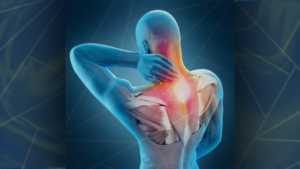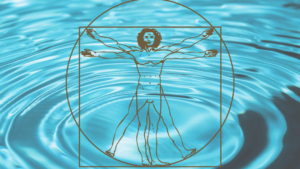We all agree that health is important – but do we really understand what it means? More importantly, are we teaching it in a way that truly resonates with young people?
Think about it: How do we teach children about their own bodies? Do we help them connect with the intricate processes working tirelessly to keep them alive and thriving? Or do we simply present health as a checklist of do’s and don’ts?
Health isn’t just the absence of illness – it’s a state of balance. The word ‘disease’ itself means ‘dis-ease,’ a disruption in this equilibrium. If we want young people to truly grasp what it means to be healthy, we need to shift our focus from reactive health education to applied health-building.
Every second, your heart beats, your lungs exchange oxygen and carbon dioxide, and your digestive system extracts nutrients from food – all without you consciously directing any of it. Your skin cools you down with sweat before you overheat, your blood sugar levels shift in response to what you eat, and your heart rate speeds up or slows down based on activity and emotion. These processes happen without conscious effort, yet they determine how we feel, focus, and function every day. Your body is an orchestra of self-regulating systems, constantly adjusting to its environment. But how often do we teach young people to tune in and to notice these signals? Do we show them how to recognise the early signs of dehydration before fatigue or a headache sets in; how to adjust their habits to support their body’s natural rhythms?? Or do we wait until these imbalances lead to bigger issues and become too big to ignore?!
At Vibrant Health Education (VHE), we believe in a proactive approach – helping young people recognise, understand, and respond to their bodies’ signals. Why do we sweat when it’s hot – or even when it’s not? Why do we shiver when we are cold and why do our hands shake when we’re hungry? Why does sleep deprivation make it harder to learn? How can nutritional deficiencies affect our mood? These are not just biology lessons; they are life skills that every child deserves access to.
Current educational curriculums provide a solid foundation, but lack a vital element – the bridge between theoretical knowledge and real-life application. If we want our youth to grow into resilient, health-literate adults, we must fill this gap.
Imagine a classroom where students don’t just learn about hydration but track their water intake and recognise its impact on energy and focus.
Picture a generation that understands the early signs of vitamin deficiencies – such as vitamin A, B’s, C, D, Magnesium and Zinc – before they lead to dis-eased states like chronic fatigue or poor concentration; and further, which foods to suppliment with once recognising these deficiencies.
Think about the impact of teaching students how their nervous system responds to stress –and what they can do to regulate it in real time, using evidence-based, proven techniques that are easy to remember and quick to implement; referring to this toolkit whenever they need.
Consider the benefits from engaging students the art of emotional management; to be consciously present with every emotion they feel arising and utilise it effectively, maximising their overall wellbeing and resilience.
This is just a taste of the vision behind Vibrant Health Education CIC.
Our programme is developed by pioneering experts in medicine, health, and wellbeing, and our mission is to equip young people with essential insights and practical tools that will serve them for life. Because true health isn’t just something we learn – it is lived.
If you’re a teacher, school leader, or someone passionate about meaningful education and wellbeing, we’d love to hear from you.
Drop a comment, share your insights, or get in touch!
#vhedu❤️




